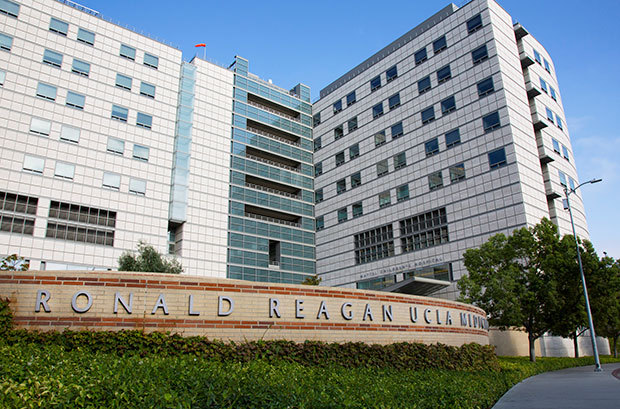Healthcare vs. Wealthcare: How UCLA Embraced Hollywood and VIP Medicine

By Rex Weiner
Part Two of a Two-Part Series About UCLA’s Concierge Medicine Program
When Dr. Gerald S. Levey left his job at pharmaceutical megacorporation Merck & Co. to take over UCLA Medical Center in September 1994 as the new dean of the medical school and vice chancellor of medical sciences, he faced two emergencies.
One was a wrecked medical center, no longer safe for patients, thanks to the Northridge earthquake that occurred earlier that year. The second was the University of California system itself, bleeding $433 million in funding cuts because of California’s perennial budget crises prompted by the 1978 passage of Proposition 13, and forcing UCLA to slice $45 million from the medical center’s operating budget and to slash 1,000 jobs. The prognosis for the 57-year old Levey’s vision of leading a rebuilt—and fundamentally restructured—UCLA Medical Center into the 21st century was less than sanguine.
Guided by high-powered movers-and-shakers like superagent Michael Ovitz, the New Jersey-born Levey’s introduction to Hollywood helped attune his strategy to the entertainment industry’s peculiar culture—it was all about VIPs. The annual Aesculapians Ball benefiting the medical center was held on a soundstage on the 20th Century Fox lot, with entertainment provided by Frank Sinatra or Barbra Streisand, attracting the upper crust of Hollywood’s elite; as many as 1,500 invited guests raised more than $3 million in one night. According to Never Be Afraid to Do the Right Thing, Levey’s instructive memoir, his Eight Principles of Fundraising include Principle Five: “Donors to AHCs [Academic Health Centers] expect the quid pro quo: access to the best medical care.”
And that, they got. Levey helped ensure this by quickly promoting an assistant in the dean’s office named Jane Cubicciotti, who was its donor liaison, to be the director of the newly minted Division of Special Services. By giving her a staff to run and a title (and higher pay grade), Levey institutionalized what had been an ad hoc practice of doling out favors to UCLA donors and celebs, extending as well, in Levey’s account, to calls from “public officials, regents, other campus units and the chancellor.”
For her part Cubicciotti, who still works from the dean’s office, told Capital & Main she is doing the same job she’s always done since 1989, and had only good words for her retired boss. “Dr. Levey is the most compassionate, good-hearted man. We never bent the rules, we’d never do anything that was unethical.”
For the full article, click on the link below.
[Source]: Capital & Main


